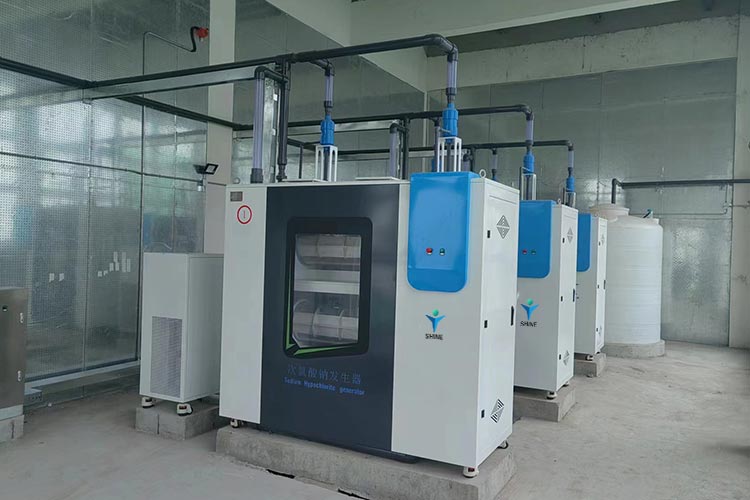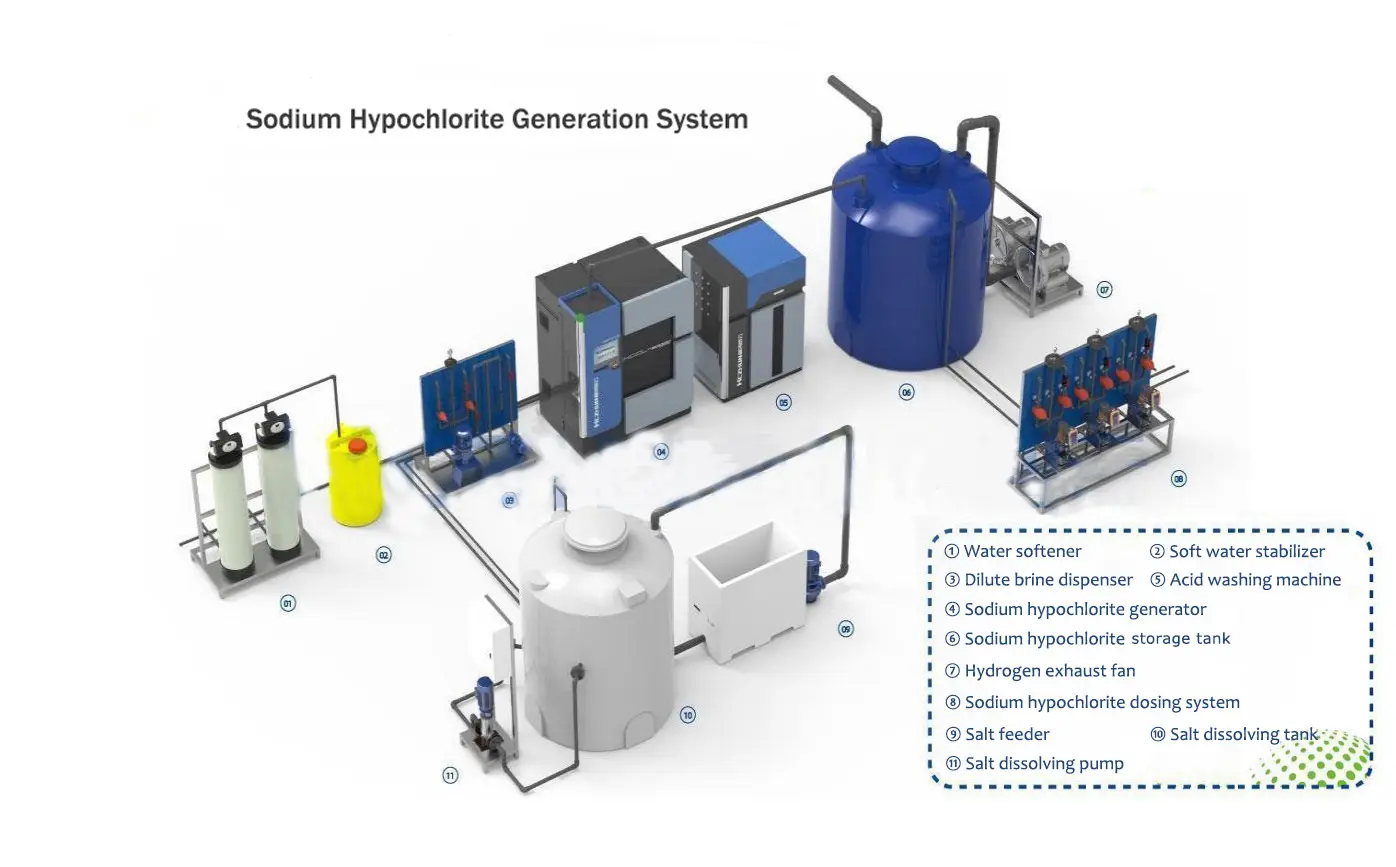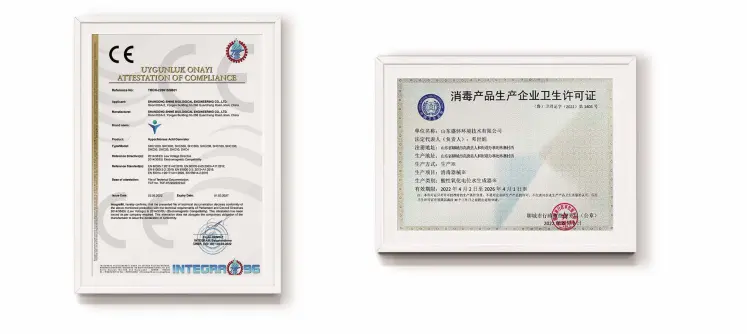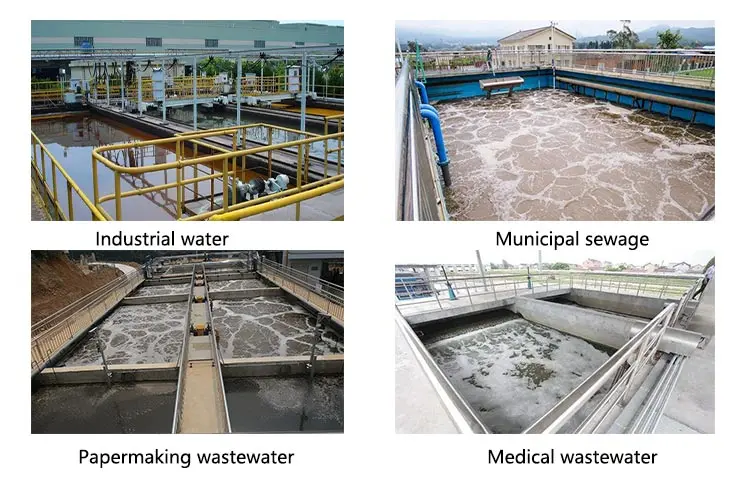
- HOME
- Products
- Sodium Hypochlorite Generator
- Characteristics of disinfection technology for sodium hypochlorite generator water plants
Sodium hypochlorite solution is a widely used broad-spectrum bactericidal and algal killing strong oxidant, with bactericidal efficacy comparable to chlorine gas
Effective chlorine production: 50-15000g/H
Effective chlorine concentration: 3-10g/L
Installed power: 0.3-90KW
Host size: Customized delivery cycle: 25 days
WhatsApp:+86 19953182842
Email: henry@hoclshine.com
Product Details
Technical characteristics of sodium hypochlorite generator: Currently, the commonly used disinfection methods in water
treatment include liquid chlorine, chlorine dioxide disinfection, ozone disinfection, ultraviolet disinfection, etc. Liquid chlorine
has been widely used in water treatment due to its advantages such as good disinfection effect, low investment and operating
costs, and mature technical processes. However, in recent years, due to people's concerns about the unsafe transportation
and storage of chlorine gas, as well as concerns about chlorine disinfection by-products, especially in the operation and
management process of water plants, which require frequent chlorine leakage drills, safety approval, and operation
management, the cost of liquid chlorine disinfection continues to increase. Currently, large urban water plants are gradually
limiting the use of liquid chlorine and seeking safer and more effective disinfectants.
Product parameter
Effective chlorine production: 50-15000g/H
Effective chlorine concentration: 3-10g/L
Installed power: 0.3-90KW
Host size: Customized delivery cycle: 25 days
WhatsApp:+86 19953182842
Email: henry@hoclshine.com

Product advantage
Sodium hypochlorite has a bactericidal effect equivalent to chlorine gas, and is a truly efficient, broad-spectrum, and safe strong
sterilization agent. Its advantages mainly include: 1. Accurate dosing, achieving residual chlorine content in the factory water
compared to chlorine gas, and relatively less consumption when using sodium hypochlorite solution. Due to the incomplete
dissolution of chlorine gas when added to water, a certain excess coefficient needs to be considered. When the same amount is
added, sodium hypochlorite has a good affinity for water and can dissolve in any ratio with water. The effect is better than
adding chlorine gas, and the operation is safe and convenient to use; 2. The attenuation of residual chlorine in the pipeline
network disinfected by sodium hypochlorite is slightly slower than that of free residual chlorine in chlorine gas disinfection.
The main reason is that the hydrolysis of sodium hypochlorite in water is slower than that of chlorine gas, and it is alkaline and
has a more sustainable disinfection ability; Compared with chlorine gas disinfection, sodium hypochlorite has lower safety risks,
does not pose any leakage hazards to human life safety, and does not produce toxic or harmful by-products. Studies have
shown that during sodium hypochlorite disinfection, dichloroacetic acid (DCAA) in the factory water is lower than that in liquid
chlorine disinfection, while trichloroacetic acid (TCAA) is basically equivalent. When sodium hypochlorite is used for disinfection,
trihalomethanes (THMs) in the factory water are lower than liquid chlorine, and carbon tetrachloride (CCl4) is basically equivalent
to the two. Overall, the amount of sodium hypochlorite disinfection by-products is lower than that of liquid chlorine. 4. Sodium
hypochlorite will not cause severe corrosion to metal pipelines like chlorine reacts with water to form hydrochloric acid. At the
same time, it is easy to transport and raw materials are readily available.
Process Flow Diagram

Qualification certificate

Application

Submitted successfully
We will contact you as soon as possible